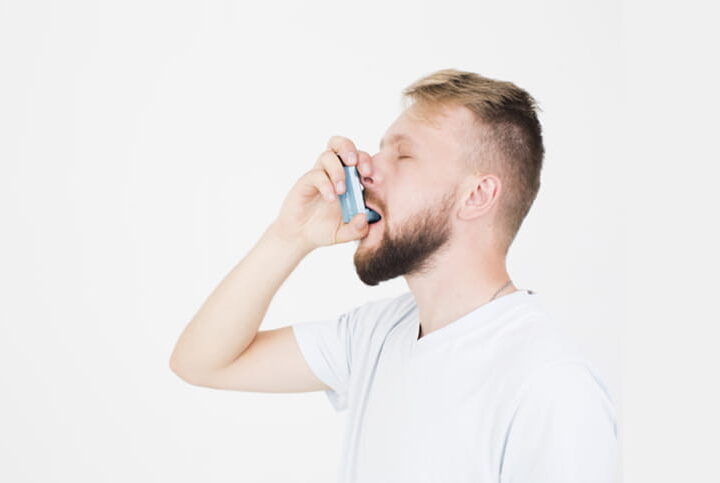What is Asthma or Bronchial asthma?
Asthma or Bronchial asthma is a disease of the airways responsible for free exchange of air between the lungs and outside surroundings. Asthma symptoms develop when there is obstruction to the airflow into the lungs. With the progress of the disease, along with reduced airflow, other symptoms of bronchial asthma develop which are cough, wheeze and breathlessness(dyspnoea).
What causes Bronchial asthma?
The cause for Asthma is not yet understood. The presence of certain genetic and environmental factors are found to be the reasons for Asthma in the recently conducted research.
What are the risk factors and triggering agents associated with Bronchial asthma?
Characteristically, asthma patients complain of attack of its symptoms due to certain risk factors which act as triggering agents . Some of the risk factors are
- Indoor / Outdoor allergens
- Passive smoking
- Stress
- Dietary habits
- Occupational exposure
What are the signs and symptoms of Bronchial asthma?
The symptoms of asthma are wheezing, breathlessness and cough. These symptoms may get worse at night and typically the patients wake-up in the early morning hours with the asthmatic attack.
Before an asthmatic attack, there is itching under the chin, discomfort between the scapulae or an unexplainable fear(impending doom).
What is wheeze ?
Wheeze is a high-pitched whistling sound which comes on breathing. It can be more clearly heard in low-noise areas. It indicates the severity of Asthma even at rest.
What really happens in Asthmatic patients ?
There is gradual narrowing of the air passages of the upper respiratory tract which slowly descends into the lower respiratory tract. Due to the narrowing, there arises a sensation of airways obstruction causing the typical sensation of breathlessness.
With the prolonged narrowing of the airways, the mucus secreted from the linings get accumulated and also get infected leading to choking sensation and cough. Since the air passages are in the form of tubes, the air as it passes through narrowed airways, typical sound is heard which is referred to as wheeze.
Who get affected with Asthma?
The incidence and presence of asthma is found across the globe in equal proportions. Bronchial asthma is relatively more common in childhood and interestingly male children are twice more affected with asthma than female children.
In adults, Bronchial asthma is found equally in both the sexes.
What is the treatment protocol for asthma ?
In the initial stages of Asthma, the narrowing of airways is usually reversible with treatment but in severe cases of chronic asthma, the narrowing will be irreversible.
The aim of treatment will be to minimize the chronic symptoms. To bring to a stage of no acute attacks. To feel confident in performance without limitations on activities . To ensure there are no adverse effects from medicine. Finally, remove the dependence on medicines for asthma.
Then, what is thebest treatment for Asthma?
Since causative factors are not yet understood for asthma , the treatment should be more constitutional so that the tendency to narrowing of airways is normalised. Homeopathy is a system of medicine which works wonderfully when prescribed based on constitution of the patients. Homeopathic medicines also improve the immunity to sustain the risk factors and triggering agents which might be responsible for trivialising the already asthmatic condition.
Positive Homeopathy Clinics have gained reputation in providing best homeopathic treatment for asthmathrough constitutional and therapeutic method of treatments to ensure asthmatic patients lead a confident healthy life.

